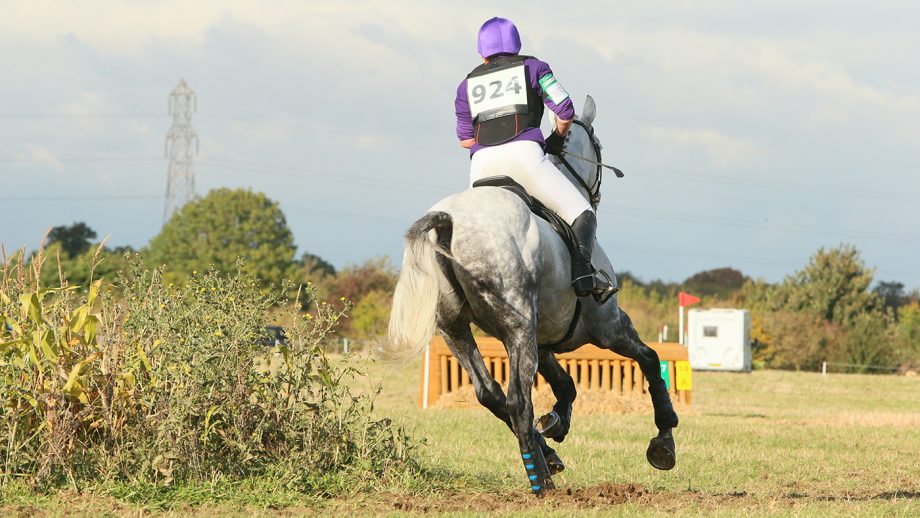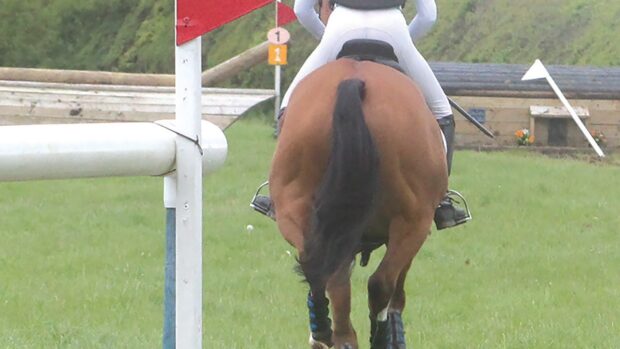British Eventing (BE) has made its first profit in almost 10 years and has outlined plans to involve young people better in helping shape the sport’s future.
The news came in the release of the governing body’s 2022 accounts (H&H online, 29 November) and was a main point of discussion at the 2023 AGM (8 December).
BE’s problem-strewn multi-million-pound IT transformation project was written off in one final financial hit in its 2022 accounts. BE is expected to make a profit in 2023 and is taking a significant focus on the way the organisation is run.
Other major news included the fact that BE is launching another new, separate, charity – the BE Training Fund (BETF) – to focus on training and coaching. BE also shared news of its new abandonment fund, 2024 fixtures list, plus how it plans to support and educate volunteers better.
BE chairman Mark Sartori told the meeting “massive progress” has been made this year, thanking the board, new chief executive Rosie Williams and former CEO Helen West.
“This is a governing body that was basically facing going broke,” he said. “We’ve come on as a board to sort out the governance, to sort out the business model and the finances and the criticism we will always get from our members is, ‘You’re turning into a business’. Well, we are a business and we need to be sustainable.”
The fixtures list had gone out to organisers that day, so was not yet public at the time of the meeting. But the AGM heard that there are new and returning fixtures to the calendar for 2024, including the return of Weston Park.
The controversial decision ahead of 2023 to not allow events running international classes to host unaffiliated fixtures remains under the spotlight.
“We’re going to be doing a big piece of work this year to ascertain the difference and the challenges that the unaffiliated, unregulated market brings,” said Ms Williams, adding that this market “could be perceived as a threat to the BE core offer”.
“In principle, we want to ensure that there’s an event and eventing opportunity for everybody, but I will have to take my time in terms of looking at the unaffiliated, unregulated market,” she said.
Ms Williams spoke of the need to invest in a “modern education system” for riders, coaches, officials and to upskill volunteers. She highlighted the “incredible” number of people who have already applied to be part of a new eventing national youth forum and help shape eventing’s future.
“The future is in these young people. A sport like eventing is a tough ask to stay in as a young person. So we need to speak to the young people,” she said.
Abandonment insurance, which has been a bone of contention in affiliated eventing for many years, is still a hot topic.
At the end of 2021, BE decided to scrap its “poor value for money” blanket policy to mixed reaction, meaning that organisers could seek their own or self-insure, alongside BE’s minimum refund policy. Then in May this year, following the washout spring, BE announced that it would be conducting a “full stakeholder review” of abandonment insurance.
Ahead of the AGM, BE revealed a new fund, billed as “not a form of insurance”, which will give competitors a goodwill payment of up to 60% of the entry fee at BE’s discretion, if an uninsured event is forced to abandon. This will come partly from the fund and partly from the organisers. Events remain free to take out their own abandonment insurance policies instead.
A BE statement on 7 December said based on an estimated £1.4m insurance policy, members would have been asked to pay an additional 20% on top of their entry fee “which we felt was simply not sustainable”.
Instead, BE has pledged £75,000 as a starting sum for its abandonment fund. The rest will be funded by a 5% surcharge on all competitors’ entry fees, plus 2% of entry fees by organisers of events that do not have their own abandonment insurance policies.
In response to pre-submitted questions from members at the AGM, Ms Williams said: “There will be more detail to come. However, we have, I think, come up with a very good solution that gives value to the members and to the organisers as well and finds that really delicate balance between those two.”
H&H has asked for confirmation of whether the 5% payable by competitors will be on top of their entry fee, and how BE will ascertain which events/competitors are prioritised for refunds if the cost of payouts exceeds the amount in the fund. H&H has also asked if BE may pay out to abandoned events for their costs, or if it will only be to competitors for their entry fees.
A former BE abandonment fund paid out £788,000 in 2007 and nearly £700,000 in 2008. It was replaced by an insurance policy in 2009, which coincided with a 10% rise in entry fees to pay for the premium. The idea was that competitors would still get refunds, but that BE would no longer risk having to pay out huge sums.
You might also be interested in:

Subscribe to Horse & Hound magazine today – and enjoy unlimited website access all year round

‘We’ve got to pull together… not just moan’: Pippa Funnell joins British Eventing board

British Eventing marks end of multi-million pound ‘IT debacle’ with hopes of first profit in nearly 10 years
Horse & Hound magazine, out every Thursday, is packed with all the latest news and reports, as well as interviews, specials, nostalgia, vet and training advice. Find how you can enjoy the magazine delivered to your door every week, plus options to upgrade your subscription to access our online service that brings you breaking news and reports as well as other benefits.



